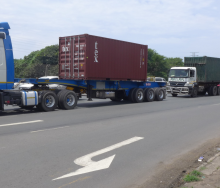Veterinary training will assist exporters to comply with strict requirements and enable wider participation in a lucrative market.
The red meat industry is about to embark on a countrywide technology transfer campaign of public and private vets and owners of abattoirs and feedlots to comply with the stringent veterinary health requirements for export to Saudi Arabia.
Although this potentially lucrative market already opened in December 2023, the 15 approved abattoirs could not readily adhere to the negotiated veterinary health certificate approved in December 2023. Fifteen local abattoir and meat plants were audited and approved by the Saudi Food and Drug Authority to export beef and sheep meat to this country. The veterinary requirements set by the Saudi government provide for risk mitigation measures as a result of continued foot-and-mouth disease (FMD) outbreaks in South Africa.
Veterinarians are key in red meat exports, as they sign off on the animal health certifications negotiated between the exporting and importing countries’ governments. Due to the limited number of state veterinarians, those in private practice will, in many cases, have to be registered by the Department of Agriculture, Land Reform and Rural Development (DALRRD) to provide certification on farms or feedlots wishing to present livestock for slaughter intended for export. This confirmation that all conditions have been met, is provided on behalf of government.
Dr Gerhard Neethling, manager of the Red Meat Abattoir Association, is providing veterinary services for the umbrella body, Red Meat Industry Services (RMIS), and explained that any abattoir or feedlot may export to Saudi Arabia. Such facilities must, however, first be audited and there must be compliance with the requirements as set out in the DALRRD guidelines. A lack of clarity on how to implement the requirements is delaying the approval of additional facilities. These were set out in an addendum to the initial export agreement in June last year.
“We therefore decided to hold workshops for both state and private veterinarians to provide them with more information on how to implement and apply these requirements.”
He said currently the demand for South African red meat in Saudi Arabia was more than South Africa could supply because there were not enough institutions complying with the veterinary requirements.
This initiative is part of the Red Meat Industry Strategy 2030 of the industry umbrella organisation Red Meat Industry Services, which is gearing the South African red meat industry to become a leader in the sustainable production of quality, traceable red meat for a growing world population. Exports are crucial for increasing local farmgate prices for red meat, which have remained stubbornly low due to weak consumer spending power.
Neethling also welcomed the partial reopening of the Zimbabwean market for South African red meat and genetic material for cloven-hoofed animals.
“It is also a testament to the confidence in government and the industry to control animal diseases amid challenges, for instance with FMD.”
While currently only exports from Gauteng, North West, the Northern Cape and Western Cape are allowed, a request to also allow exports from the Free State has been lodged with Zimbabwean authorities.













